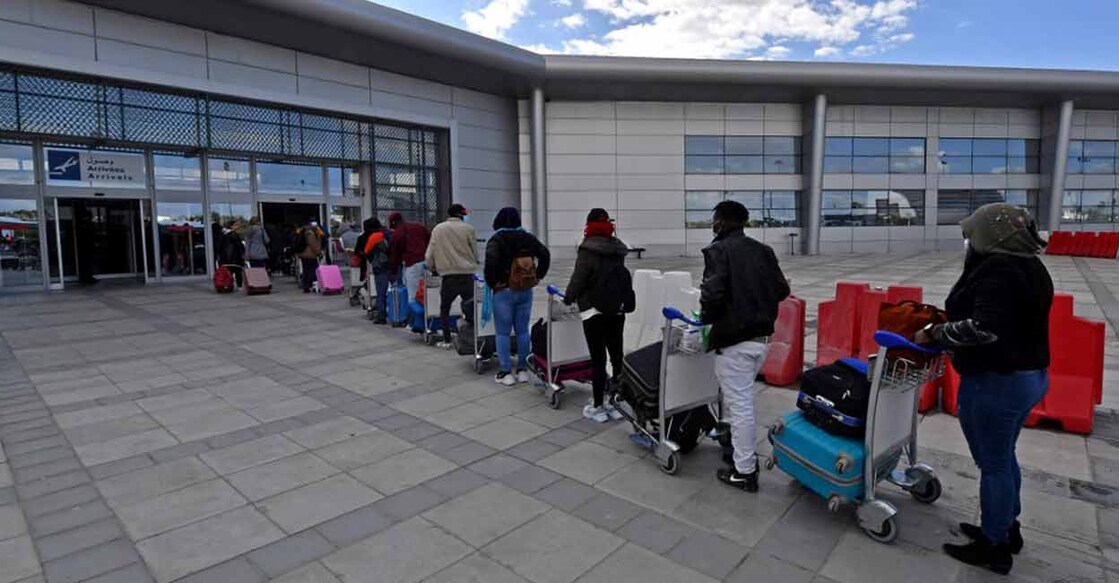Migrants comprise 4.7% of labour force globally

Mail This Article
• The United Nations observes December 18 as International Migrants Day to highlight invaluable contributions of millions of migrants around the world.
• Conflicts, climate-related disasters and economic pressures continue to drive millions of people from their homes in search of safety or simply opportunity.
• This past year saw record levels of internal displacement, rising humanitarian needs across ongoing and new crises, and, tragically, the highest-ever death toll of migrants in transit.
• Yet, alongside these challenges, are stories of resilience, progress and hope.
• Migrants play critical roles in labour markets, filling skills gaps, driving innovation and entrepreneurship, and addressing demographic challenges in aging societies. Migrants boost economic growth and provide a lifeline to families and communities back home, driving development.
• The evidence is overwhelming that when migration is managed safely and strategically, it can be a powerful force for good.
• International migrants continue to play a vital role in the global labour market, accounting for 4.7 per cent of the labour force in 2022, according to the latest report by the International Labour Organisation (ILO).
• The ILO Global Estimates on International Migrant Workers, indicates that 167.7 million migrants were part of the labour force of their destination countries in 2022.
• Of these, 102.7 million were men and 64.9 million were women (rounded figures).
• This represents an increase of more 30 million since 2013, an increase that was mainly observed between 2013-2019.
• The report underscores the complexities of labour migration and the key need for targeted policies to support international migrants. These include improving access to decent work opportunities and enhancing the protection of migrant workers.
• With the majority of migrants employed in high-demand sectors, ensuring equitable access to employment opportunities for fostering sustainable development and inclusive labour markets is a policy priority.
Key points of the report:
• In today’s globalised economy, more people in search of decent work are looking for job opportunities beyond their home country.
• The term “international migrants in the labour force” means that persons can be working or unemployed, and more than 155 million had jobs.
• The majority of migrants in the labour force were concentrated in high-income countries, which accounted for 68.4 per cent of the total (114.7 million people), followed by 17.4 per cent (29.2 million) in upper-middle-income countries.
• The majority of migrants in the labour force were concentrated in Northern, Southern, and Western Europe; Northern America; and the Arab States.
• The share of migrants in the labour force living in Northern, Southern, and Western Europe increased from 22.5 per cent in 2013 to 23.3 per cent in 2022. In contrast, the share of migrants in the labour force of Northern America and the Arab States experienced slight declines.
• Migrants faced a higher unemployment rate (7.2 per cent) compared to non-migrants (5.2 per cent), with migrant women (8.7 per cent) experiencing higher unemployment levels than men (6.2 per cent). This disparity may be driven by factors such as language barriers, unrecognised qualifications, discrimination, limited childcare options, and gender-based expectations that restrict employment opportunities, particularly for women.
• A significant proportion of migrants – 68.4 per cent – were employed in the services sector, compared to 51.5 per cent of non-migrants. This trend was largely driven by the global demand for care and domestic work, particularly among women. 28.8 per cent of migrant women and 12.4 per cent of migrant men were employed in care economy, compared to 19.2 per cent of non-migrant women and 6.2 per cent of non-migrant men.




